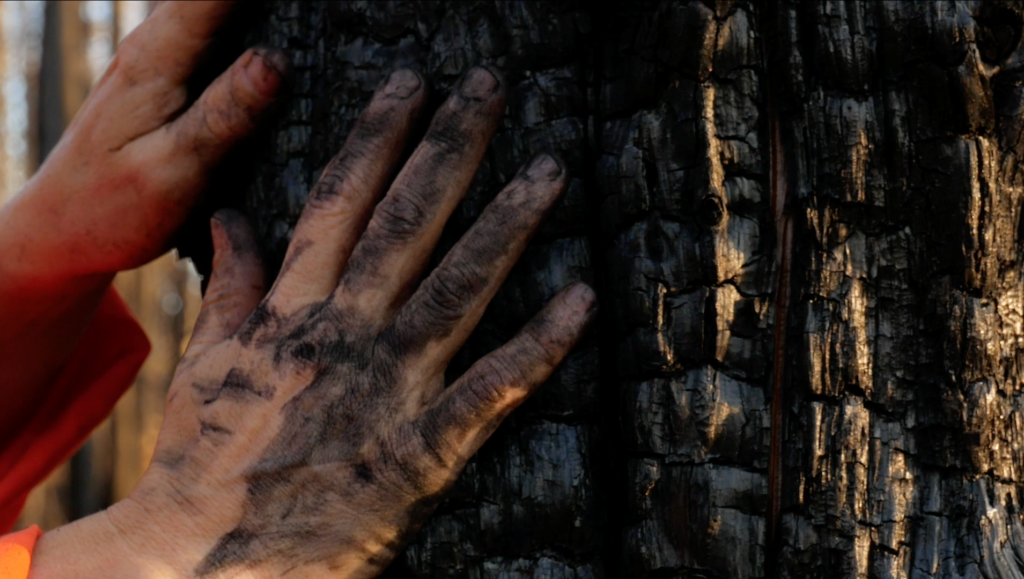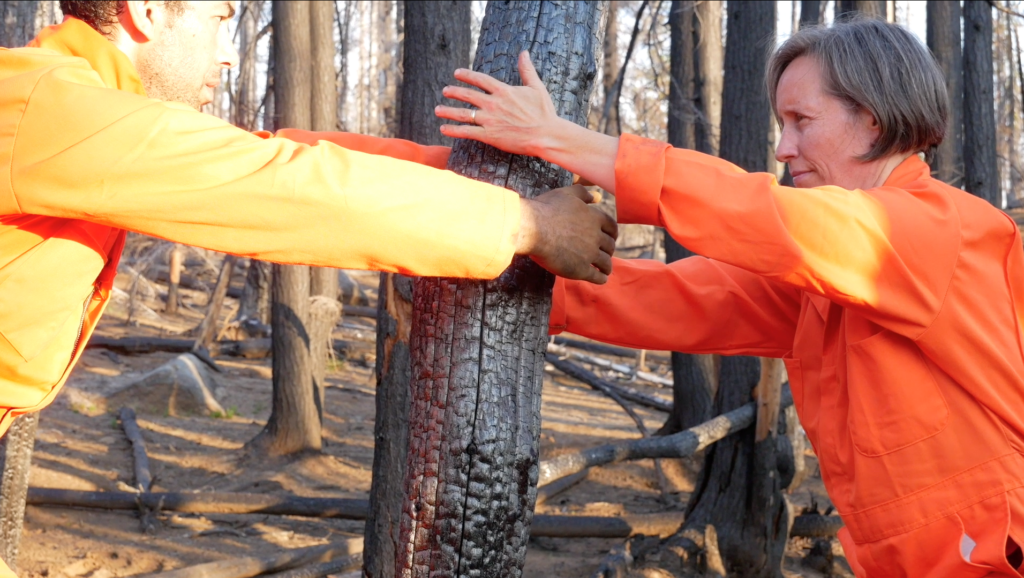New Zealand-Canadian composer Juliet Palmer turns the rich and haunting sounds of a dead forest into the “harmonic ground” for her new piece titled fire break, commissioned by the HPO.
fire break began with Palmer’s fascination in the hidden “voice” of a dead cedar tree revealed by field recordings in a reservoir in Oregon.

“This recording lays down the harmonic ground for the orchestral piece,” said Palmer of fire break’s relationship to the nature recordings. “Throughout the process I had been very aware that most of the instruments in the orchestra come from the forest: violins, cellos, oboes, clarinets…these were all once trees.”
In her field recordings, Palmer bows tree roots and plays standing dead trees like xylophones, and through this, “the dead tree starts to sing.” fire break is one of Palmer’s “inaccurate transcriptions,” her term for work that transforms field recordings into instrumental music. She used the same method in her recent work, Oil & Water, commissioned by the Detroit Symphony, using materials ranging from the sounds of a water pumping station and spring peepers in Ottawa’s Mer Bleue wetlands to the sounds of Kinder Morgan pipeline protests.
Palmer is always looking for new ways to find music in surprising places; her compositions reflect that creative curiosity through multidisciplinary collaborations. In tandem with her collective Urbanvessel, of which she is the Artistic Director, Palmer has incorporated video, visual art, sculpture installation and more with her compositions. Palmer is currently part of a collective led by visual artist Carla Bengtson, and including choreographer Darion Smith, ceramicist Jessie Rose Vala and scientist Peter Wetherwax. Their performance installation Every Word Was Once an Animal opens in March at the Jordan Schnitzer Museum of Art in Eugene, Oregon.

fire break took on a life of its own for Palmer after the composition process began, and the piece became dedicated to the forests that burned in recent years: “unprecedented fires in the Amazon and in Australia claimed almost 200,000 sq km in 2019. The mellow brooding voice of those tree roots gave way to something much more impassioned — expressing a mix of anger and grief.”
“Listening together, I wonder if it’s easier to deal with unsettling emotions,” said Palmer, reflecting on music’s role in confronting the climate disaster. “Collective listening gives us the time and space to face ecological grief and anger. Sharing that experience, we know that we’re not alone.”